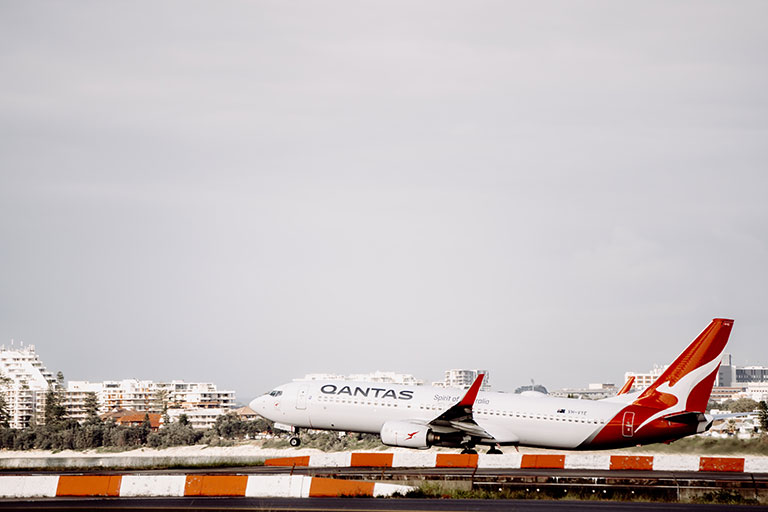The success of the fund will have a major impact on the business event industry, which is reliant on the aviation industry being able to reach its carbon targets to become carbon neutral itself, given the role air travel and air freight plays in delivering both supplies and delegates for events.
The $400 million fund represents an additional $110 million investment by Qantas, who has already contributed to a $290 million sustainable aviation fuel partnership with Airbus in 2022.
Sustainable aviation fuel is typically made from waste products like cooking oil, animal fat, solid household and business waste, and reduces the overall carbon emissions of the fuel over its full lifecycle by up to 80 per cent when compared to traditional jet fuel. SAF can be used in current aircraft, with Qantas already using it on flights to Australia from London.
Although the Qantas-Airbus partnership recently funded its first SAF refinery in Queensland, Australia does not have a significant supply of local SAF.
Aside from supporting SAF produced in Australia, the fund will invest in technology, managed sustainability funds and research and development partnerships. Investments in high integrity carbon offsets, international SAF and operational efficiency technology will all be part of the fund’s remit.
Qantas is aiming to reduce its carbon emissions by 25 per cent by 2030, including having SAF as 10 per cent of its fuel mix. It anticipates SAF accounting for 60 per cent of its fuel mix when 2050, by which time the airline expects to be carbon neutral.
Qantas Group’s chief sustainability officer Andrew Parker announced the fund at the airline’s investor day today – the first time the carrier has held such an event since the pandemic began.
“Managing climate change is now built into how we do business and is a key part of our strategy through to 2030 and beyond,” said Parker.
“We have already made progress towards our interim climate targets with sustainable aviation fuel powering our flights out of London, more fuel-efficient aircraft arriving every month and a mature carbon offset program.
“Governments around Australia are making important progress on working with industry to help decarbonise, and we welcome that. Creating markets for new fuels is a critical part of tackling climate change, which is why we’re today calling for a SAF mandate to be introduced to catalyse the development of the industry.
“Several of the countries we fly to have already committed to blending mandates of 5 to 10 per cent by 2030, and others are well on the path to introducing one. Australia has significant advantages for SAF production and there’s a great opportunity to create a new domestic industry.”
A SAF mandate would force aviation fuel suppliers to provide a certain percentage of sustainable fuel at Australian airports as a minimum standard.
“Without the right policy settings and signals we will see investment, projects and feedstocks move offshore to places with specific policy support. We look forward to working with government and the rest of the industry to ensure we capitalise on this opportunity for Australia,” said Parker.




















